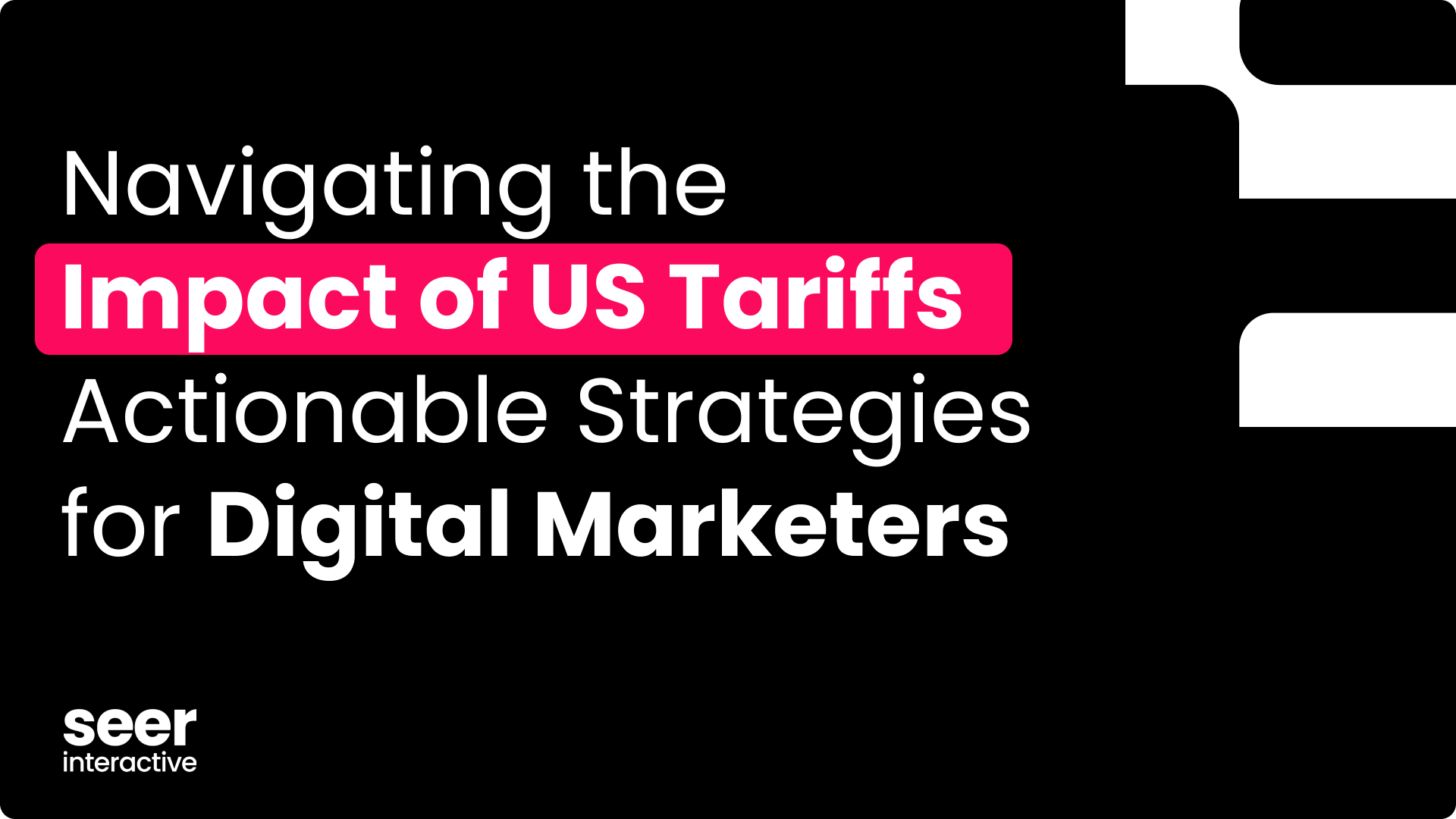Staying ahead of Google’s algorithm updates is important for any SEO strategy. Each time Google releases a new update or there are fluctuations within search result pages, SEOs quickly jump into Google Analytics, Adobe Analytics, or Google Search Console to analyze data and assess impacts on their clients' websites. SEOs care about algorithm updates because they can directly affect performance, influencing whether businesses can meet their goals.
However, instead of trying to “outsmart” the algorithm, we want to talk today about understanding Google’s intentions with algorithm changes and how SEOs can stay ahead of the inevitable changes in search engine results pages (SERPs).
Understanding Recent Google Algorithm Trends
Major Updates from the Past Year
Over the past year, Google has continued its trend of releasing core algorithm updates, spam updates, and review updates. These changes are often responses to shifts in digital marketing, particularly the growing influence of AI.
The rollout of the search generative experience (SGE) and AI overviews (AIOs) are examples of how Google is integrating AI into its ecosystem. As AI continues to grow, we can expect Google to adjust its algorithm and user experience accordingly.
Predicting the Algorithm: What’s Coming Next?
While it’s difficult to predict Google’s next move, certain patterns are clear. Google’s stated goal is to provide helpful, reliable content to users. Their ranking systems are designed to highlight content that offers real value.
By focusing on user-centric content that answers questions, provides solutions, and delivers a seamless experience, SEOs can align with Google’s goal. We believe that future updates will likely continue to prioritize this goal, so staying ahead of the algorithm involves anticipating these trends and preparing your website accordingly.
Proactive Strategies to Prepare for Future Updates
Content Quality and Relevance
To remain competitive in the land of search, your content must not only meet current needs of your users but also anticipate future changes. We recommend focusing on delivering content that is both high-quality and highly relevant to your audience’s needs.
[TIP] Do you have an understanding of your audience’s needs? Check out how Seer can help you get answers!
Google's algorithm increasingly values EEAT (Experience, Expertise, Authoritativeness, Trustworthiness), especially for websites that deal with “Your Money or Your Life” (YMYL) like healthcare or financial services. Creating content that embodies these traits is more likely to be rewarded by future algorithm changes.
Technical SEO Best Practices
It’s no surprise that Technical SEO remains a cornerstone of a resilient SEO strategy. Ensure your site is optimized for speed, mobile usability, and structured data to make it as easy as possible for search engines to crawl, interpret, and rank your site.
Technical health is also critical in creating a frictionless user experience, through page load time, internal linking, and optimized alt text.
Building a Resilient SEO Strategy for 2024 and Beyond
How to Plan for a Long-Term SEO Strategy
A strong SEO strategy is essential for maintaining long-term performance growth, despite the frequent changes in Google's algorithm. The core of this strategy should be building a sustainable SEO program that is focused on creating helpful, reliable content that aligns with Google’s evolving standards.
Remember that Google's overarching goal is to present users with the most helpful and reliable content. To align with this, your content should be optimized to solve user problems, provide clear and direct answers, and offer a great user experience. By prioritizing these elements, you can ensure your content remains competitive, even as algorithms change.
It’s also important to consider the user journey for your audience and how they can find the information they need. That might mean building strategies around “ranking” in platforms like ChatGPT, Gemini, Reddit, YouTube, etc.
We expect customers to use the tools that can quickly get them the best answers with the least amount of friction. If a user can choose to use ChatGPT, Google SERPs, or your website to answer their question, then you need to make your website the best possible experience. We anticipate that frictionless interactions will likely be rewarded by Google's algorithms in the future.
You’ve Been Hit by an Algorithm Update - Now What? Monitoring and Adapting to Algorithm Changes
Staying on top of algorithm changes requires constant monitoring of your website’s performance and the overall search landscape. Tools like SeerSignals can help track keyword rankings, SERP feature ownership, and competitor visibility. Regularly analyzing this data allows you to detect any shifts that might indicate an algorithm update and adjust your strategy accordingly.
At Seer, we emphasize the importance of data-driven decision-making. By gathering and analyzing data from multiple sources—such as client presence in AI overviews, brand mentions in chat platforms like ChatGPT, and changes in keyword rankings—you can stay ahead of the curve. This proactive approach is essential for maintaining visibility and mitigating the risks associated with algorithm changes.
Stay Informed and Stay Ahead
Staying ahead of Google’s algorithm updates requires a proactive, data-driven approach. By focusing on creating user-centric content, optimizing for technical performance, and continuously monitoring your SEO efforts, you can build a resilient strategy that adapts to changes rather than reacting to them.
To ensure you’re always informed and prepared, consider subscribing to our updates or reaching out for personalized SEO strategies. Staying informed is the key to staying ahead, and we’re here to help you navigate all of the changes in search marketing.


